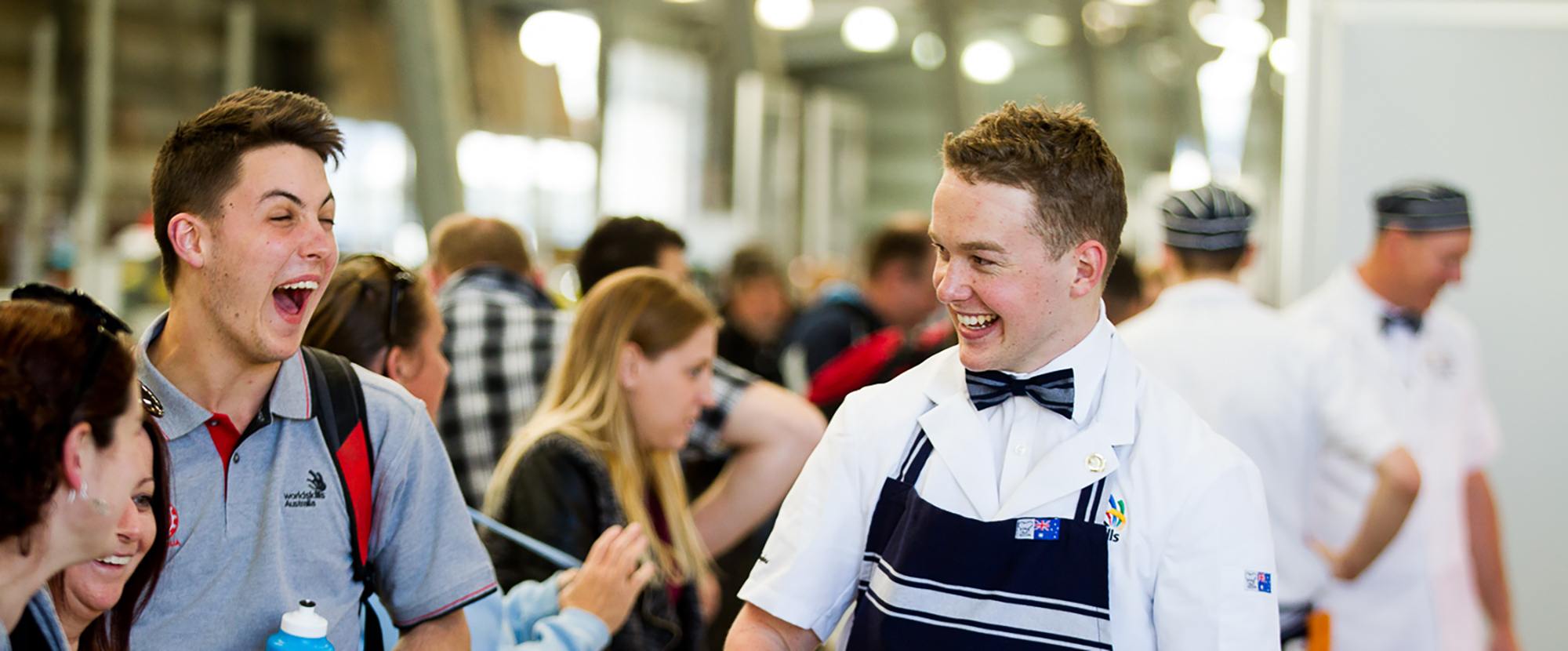Preparing for a Globally Skilled Future
Next month WorldSkills Australia will welcome 15 nations to Newcastle for the Global Skills Challenge. After these four-days of competition we will know who amongst our Skills Squad will be going to Abu Dhabi as a member of the 2017 Team Australia Skillaroos to challenge their overseas peers for the title of international champion. With this last hurdle we will see a group of skilled young people become a team ready to take on the best in the world, representing their country on the international stage potentially for the first time.
The future and prosperity of our nation and our citizens goes beyond one competition in one arena. The larger arena of the workforce is one that needs builders, makers, creators and innovators from all walks of life. In short, our future is one that is crying out for a skilled and confident base of workers and creatives to make it happen.
A recent report from the Skilling Australia Foundation and McCrindle Research confirmed what we know to be one of the biggest myths circulating around Australia. The myth? That VET graduated earn lower wages and have less opportunity than those who go to university.
The research points to a very different reality. Between 2008-2014 the proportion of bachelor degree graduates in full-time employment fell from 86%10 to 68% (the lowest number in three decades) and still remains low at 69%. Comparatively, 78% of VET graduates are employed after training and 82% of graduates who participated in VET as a part of an apprenticeship or traineeship are employed after training. The graduate employment rate of VET students who train as part of a trade apprenticeship is as high as 92%.
Australian’s need to be brave and take the lead to dispel the some of the myths that surround Australia’s future opportunities for work. An excellent first leadership step has been the announcement of the Skilling Australians Fund, which was recently revealed by The Hon Karen Andrews MP, Assistant Minister for Vocational Education and Skills, a push for vocational education with $1.5 billion to be spent over the next four years on trainees and apprentices. The aim to train 300,000 Australian workers so they can replace skilled foreign workers in high-demand jobs is an essential one that acknowledges that the economic climate and its demands are indeed changing.
While the research is definitively pointing towards a more skills based economy, we also need to continue to recognise that Australia is a place that requires and values diversity. The choice of how, where and what we choose to become skilled in is not and should not be one directed by employability alone. Education is about self-improvement, personal development and self-confidence in one’s ability to create a life that is sustainable and enjoyable. However, to be a truly advanced and forward-thinking nation, we need to recognise the value of education from tertiary through to skills focused training as equally important for our individual and combined success in an increasingly globalised world.
The Global Skills Challenge is an excellent example of this celebration of a future that is skilled, resourceful and innovative. WorldSkills is proud to host our international guests, who we know are also working towards ensuring that their workforce is highly skilled so that they can take on the challenges of the future.
 WorldSkills Australia
WorldSkills Australia 